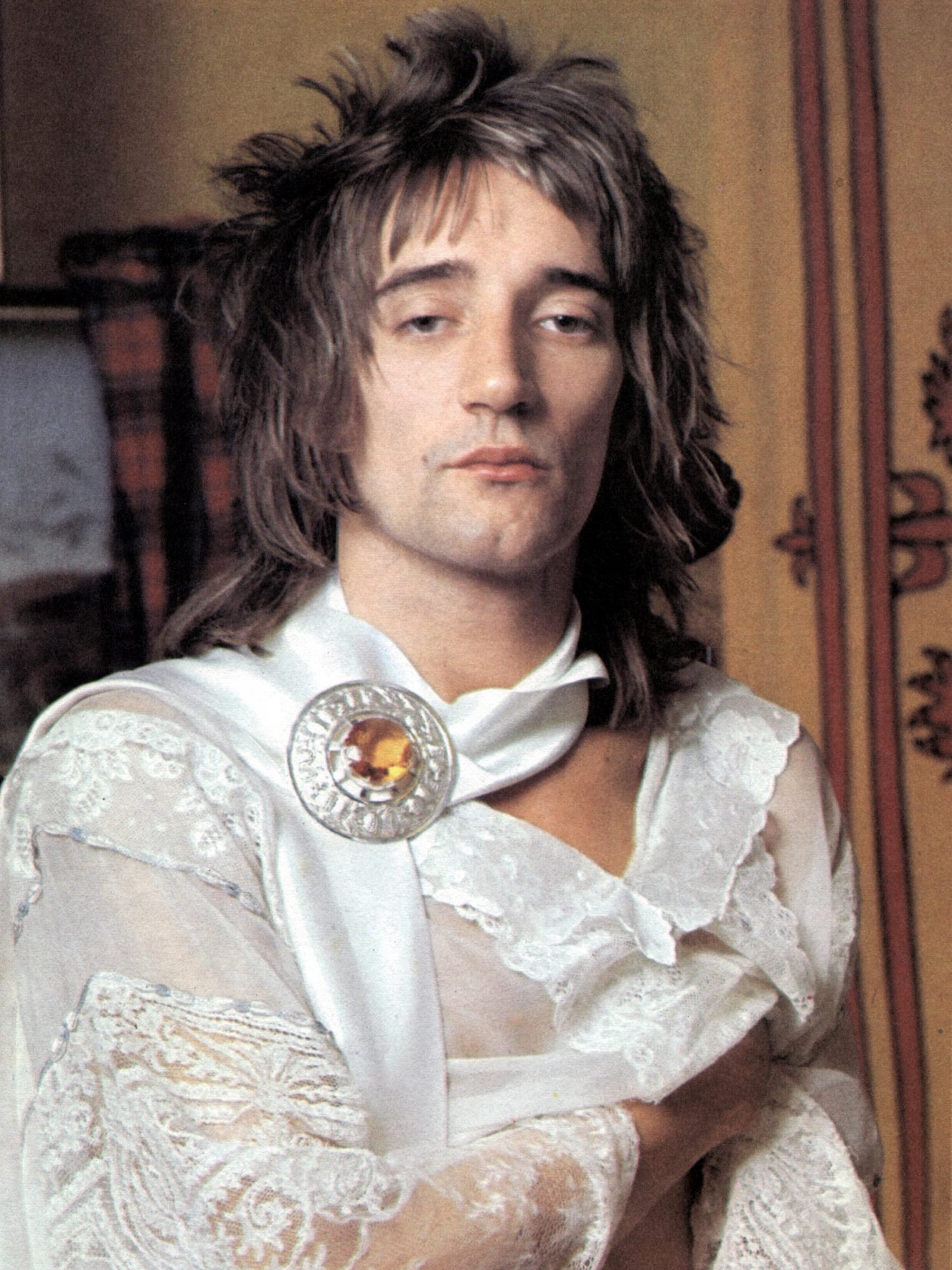After six decades of stardom, Rod Stewart has finally revealed the secret behind his success — and it isn’t about money, fame, or industry connections. The British rock icon insists the real key to mastering music lies in copying one timeless voice. That singer, Stewart says, showed him how to turn mere notes into raw emotion, changing his entire approach to performance.
For Stewart, the revelation goes back to his earliest days as a young man chasing a dream in London’s bustling music scene. Like many aspiring artists, he spent countless hours trying to define his sound and stand out from the crowd. But it wasn’t until he discovered one particular voice that his path truly began to take shape.

He credits American soul legend Sam Cooke as the artist who gave him the blueprint to greatness. Stewart recalls listening to Cooke’s records for hours, studying the phrasing, tone, and unique ability to make every word feel personal. In Stewart’s mind, Cooke wasn’t just singing songs — he was teaching lessons in emotional honesty.
“Sam Cooke had this rare gift of taking a line and making it sound like it came straight from his heart,” Stewart once explained. “I would play his music over and over, mimicking the way he delivered a lyric. It wasn’t about sounding like him, but about learning how to carry real feeling in every note.”
This philosophy shaped Stewart’s career, setting him apart from the polished but often soulless pop acts of his generation. While others chased trends, Stewart chased authenticity. That raw edge became his signature, whether in a roaring rock anthem or a tender ballad.
His approach resonates with fans because it never feels rehearsed or artificial. When Stewart rasps out a lyric, it carries both grit and vulnerability. That blend, which he refined through his devotion to Cooke’s example, remains the foundation of his enduring appeal.
Interestingly, Stewart doesn’t see copying as an act of theft, but as a form of apprenticeship. He argues that every young musician should start by emulating the greats who came before them. In his view, true originality comes only after learning the language of emotion from a master.
“Too many kids today think they have to be different right away,” Stewart has said. “But you don’t find your voice by skipping the basics. You start by learning from someone who’s already mastered it, and for me, that was Sam Cooke.”
Over the years, Stewart’s reverence for Cooke has shown itself not just in words, but in practice. He has covered several of Cooke’s songs in concert, always with deep respect. Each performance serves as both a tribute and a reminder of where his own journey began.
This humility has helped Stewart maintain longevity in an industry known for fleeting fame. While countless artists have burned out after a hit or two, Stewart has continued to evolve, guided by the lessons Cooke imparted through vinyl grooves. The connection between mentor and student remains alive, even decades after Cooke’s untimely death.
Fans often remark that Stewart’s ability to reinvent himself while staying true to his essence is what keeps them coming back. From rock and folk to pop standards, his voice carries the same emotional weight that first drew him to Cooke. That balance between versatility and authenticity has made him a household name across generations.

Music historians point out that Stewart’s philosophy echoes a long tradition among legendary performers. Many greats, from The Beatles to The Rolling Stones, began their careers by copying American blues and soul artists. In Stewart’s case, it was less about genre and more about spirit — learning how to sing with conviction.
His advice for rising stars remains clear: don’t chase fame, chase feeling. Money and charts may come and go, but the ability to connect with listeners on a human level is timeless. For Stewart, that connection has always been the ultimate measure of success.
As he looks back on his six-decade career, Stewart often emphasizes gratitude for the voice that guided him. He knows that without Cooke’s influence, his own path might have looked very different. In his words, “If I hadn’t studied Sam, I wouldn’t be the Rod Stewart people know today.”
That honesty strikes a chord with both fans and fellow musicians, many of whom see Stewart not just as a rock star, but as a living reminder of music’s deeper purpose. It isn’t about perfection or fame — it’s about emotion. And Stewart has spent a lifetime proving that truth on stage.
In the end, his message is as simple as it is profound. To master music, don’t just chase technical skill or flashy style — learn to feel every note. For Rod Stewart, that lesson came from Sam Cooke, and it remains the greatest secret he has ever shared.